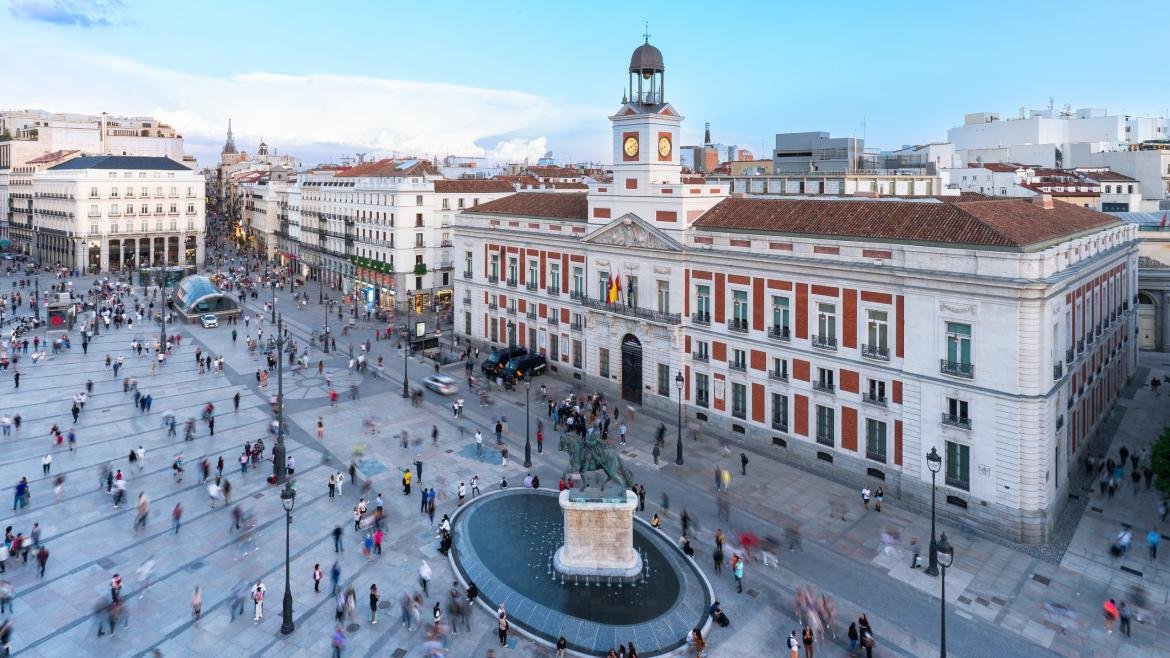
Among the achievements of the current legislature that began in mid-2023, Díaz Ayuso has mentioned the reinforcement that the regional Health system has received in this period with actions such as the upcoming start of the Ciudad de la Salud, headquarters of the future facilities of the public University Hospital La Paz and the Faculty of Medicine of the Universidad Autónoma de Madrid, which will be a unique biosanitary complex in Europe. In addition, in Primary Care, the Community of Madrid has started the construction of 25 new health centers, in addition to the four that became operational last year: Las Tablas (Madrid), Sevilla la Nueva, Navalcarnero 2; and Parque Oeste Alcorcón. Additionally, there are five more planned for construction.
To these actions is added the expansion of resources available to address the increase in sexually transmitted infections (STIs), going from one to three centers addressing these pathologies (Sandoval, Sandoval Sur, and Sandoval II). Likewise, the public health system in Madrid opened in April 2024 the Specialized Day Care Center for people with Amyotrophic Lateral Sclerosis, the first of its kind in Europe. Located in Pavilion 1 of the public Hospital Enfermera Isabel Zendal in the capital, this resource has the capacity to serve up to 60 users daily and has already welcomed more than 150.
Furthermore, the region now has 11,774 homes from the VIVE Plan, leading the construction of protected housing throughout Spain, with 53% of provisional qualifications granted in 2024. Of this total, the regional government has delivered 3,823 flats, another 4,547 are under construction or commercialization, and 3,404 from the Youth solution Plan are in the bidding process.
In the area of mobility, the regional government has inaugurated the section of the Madrid Metro Line 3 between Villaverde Alto and El Casar, in Getafe; has started construction on Line 5, from Alameda de Osuna to the Adolfo Suárez–Madrid Barajas Airport, infrastructure that will serve 66 million users of the third largest airport in Europe and its 40,000 workers, and has begun the construction of the third lane of the M-607 road.
Regional Plan against Drugs
The Community of Madrid has completed or already has in progress 82% of the initiatives included in its Regional Plan against Drugs 2024/27, a program presented just 6 months ago. This ambitious plan, focused on prevention, assistance, reintegration, surveillance, inspection, and control, has a total investment of 200 million euros with the participation of all the regional government’s departments. Of its 75 measures, 62 have already been completed or are in progress with the aim of capturing attention and raising awareness among young people, the target audience.
Pioneering measures to strengthen the quality of education
In regional education, the Community of Madrid is reinforcing its quality and excellence with pioneering measures such as the elimination of individual digital devices in classrooms, the commitment to split schedules, and the extension of Secondary courses in public schools. These initiatives will be rolled out from the next school year 2025/26 starting in September.
Likewise, this summer will see the start of construction on the City of Justice in the capital with the iconic building of the Superior Court of Justice of Madrid. 26 judicial headquarters scattered throughout Madrid will be unified on a single plot located in the Valdebebas neighborhood, with the regional government investing a total of 653 million euros. On the other hand, this balance highlights how the regional government has been the first in Spain to regulate and implement the figure of the judicial facilitator and has reached two historic agreements with the professional associations of lawyers and solicitors for free assistance or to combat housing occupation.
Locally, 92% of the 13 measures included in the program Pueblos con vida presented by Díaz Ayuso a year ago are already being implemented. The aim is to revitalize and energize the economy of the 142 municipalities in the region with less than 20,000 inhabitants and combat depopulation.
One of the most digitalized regions in Spain
The Community of Madrid has established itself as one of the most digitalized administrations in Spain with the implementation of pioneering projects such as the Digital Shield, to protect its municipalities from cyber-attacks, which has begun in 17 locations; the use of Artificial Intelligence, applied to all areas of government, especially in the health sector, and the digitalization of its public services. Thus, 240 AI use cases have been developed, of which 149 are already operational.
On the other hand, the Virtual Health Card has become the main channel for Madrid residents to access primary care, with 3.5 million users who have made more than 50 million accesses. It offers over 185 features that save time for citizens and administration in 65 health services. Similarly, the Regional Government has connected, through the Unique Social History, all social services in 164 municipalities with a population of 2.5 million citizens.
In addition, the Digital Account platform has been launched, which already incorporates 139 utilities, has reduced the time it takes for citizens to manage a procedure by up to 60% and the required documentation by up to 70%, halving the resolution period. This has already facilitated the management of nearly 300,000 procedures through the free app.
Over 8 million calls answered by 112
Furthermore, the Community of Madrid has answered a total of 8,077,545 calls through the Operations Room of the Madrid 112 Service during the management of some of the most relevant emergencies of the last two years. Among the most significant actions are the DANA of September 2023, which recorded 35,400 calls and the coordination of a crisis with a declaration of a Level 3 National Interest Emergency due to the recent power outage that left the Iberian Peninsula without electricity on April 28. This situation generated 33,100 calls. Also noteworthy are the intense rains in the region, the heaviest in the last 130 years.
In addition, Madrid has the lowest real water loss rate among the autonomous communities, at 4% compared to the national average of 16%. To continue guaranteeing quality and supply, nearly 600 kilometers of sewage pipes have been replaced since the beginning of the legislature.
Also, over these two years, the Ministry of Environment, Agriculture, and Interior has processed more than 152 million euros in aid to the primary sector and agri-food industry, benefiting nearly 4,000 farmers, ranchers, and industries in the region. And it has launched the Plan for the Dynamization of the Primary Sector, with an investment of over 148 million to develop 35 measures that will ensure generational turnover and profitability in this activity.
New tax reductions and leader in birth rate
In terms of taxation, the Community of Madrid has approved 12 new tax reductions since the start of the Legislature, resulting in an annual saving of 542 million euros, with a total of 32 since 2019. The regional government’s goal is to primarily benefit low incomes or the most disadvantaged populations. In this regard, the deflation of the Personal Income Tax for two consecutive years has also helped these incomes to prevent salary increases leading to higher tax payments.
Furthermore, the region is currently simultaneously leading the Gross Domestic Product (19.6%) in Spain, job creation, and business formation. It is also the largest recipient of foreign investment in the country, accumulating a total of 34,000 million euros since mid-2023, representing 61.4% of the total in Spain. In 2024 alone, Madrid attracted 24,705 million, a 43% increase over the previous year, marking the second-highest historical record.
In terms of social policies, Díaz Ayuso will highlight that Madrid has managed to reverse the trend of demographic decline of the last decade by increasing births by 4.7% in 2024 compared to the previous year. This growth trajectory has been driven by the Strategy for the protection of motherhood and fatherhood and the promotion of childbirth and reconciliation 2022/26. Thus, mothers under 30 years old have increased by 7.6% in the last year, and multiple births and adoptions receive assistance of 1,800 euros per child.
At the same time, the region continues to lead life expectancy in Europe, with an average of 86.1 years. Since the start of the Legislature, the regional government has increased by 27,286, 16% more, the number of Madrid residents covered by services and benefits from the public dependency system, reaching nearly 200,000, with 1,100 new beneficiaries each month.
The Community of Madrid continues to advance in its most ambitious plan in history with the opening of 40 new homes for the elderly and another 40 new day centers. Technicians from the Ministry of Family, Youth, and Social Affairs have visited a total of 20 plots of land from the Madrid City Council so far and have already requested the formal transfer of 17.
Velintonia, Spanish Ballet, and Formula 1
The president of the regional government has highlighted that one of the most significant milestones in the cultural and sports fields has been the acquisition of the house of the Nobel Prize in Literature, Vicente Aleixandre, known as Velintonia, to create a cultural space coinciding with the commemoration, in two years, of the centenary of the Generation of 27 and the 50th anniversary of the poet’s Nobel Prize; the creation, premiere, and expansion of the Spanish Ballet, the commitment to Hispanidad, and the return of the Formula 1 Grand Prix to the region in 2026, whose MADRing circuit is already progressing after the laying of the first stone.
Furthermore, the region has established itself as a reference for the celebration of sports events, with nearly 400 each year, including over a hundred major national and international events, such as the National Football League (NFL) game. Likewise, the Renovation Plan has been initiated for the remodeling of sports facilities such as those of the Canal de Isabel II, the M-86 Swimming Center, and the Piragüera in Aranjuez.
Parliamentary and management activity
A total of 50,032 initiatives have been registered in the Madrid Assembly by all parliamentary groups in this Legislature. President Isabel Díaz Ayuso has answered 183 oral questions in the Plenary of the regional Chamber, while the councilors have answered 568, of which 29 were in appearances and responded to 19 interpellations. In committee, government members have answered 48 questions, and senior officials 1,468. Regarding legislative activity, 17 laws have been approved in these two years: eleven of them are Draft Laws and six are Propositions of Law that have been presented in the Madrid Parliament.
On the other hand, the Council of Government has dealt with 3,333 matters, of which 2,267 are agreements reached, 65 reports, 118 decrees, and 12 agreements on Draft Laws.
In addition, the head of the regional government has carried out over 400 events, more than a hundred interviews in national, international press, and informative breakfasts, and has appeared over 200 times before the media. Likewise, she has undertaken half a dozen trips around Europe, America, and Asia to strengthen institutional, cultural, and especially economic relations.
As for the activity of the nine ministries, they have accumulated 7,749 events, 268 official visits within and outside Spain, and over 700 interviews and informative breakfasts. Additionally, the regional government has received 563 awards across all its areas.





